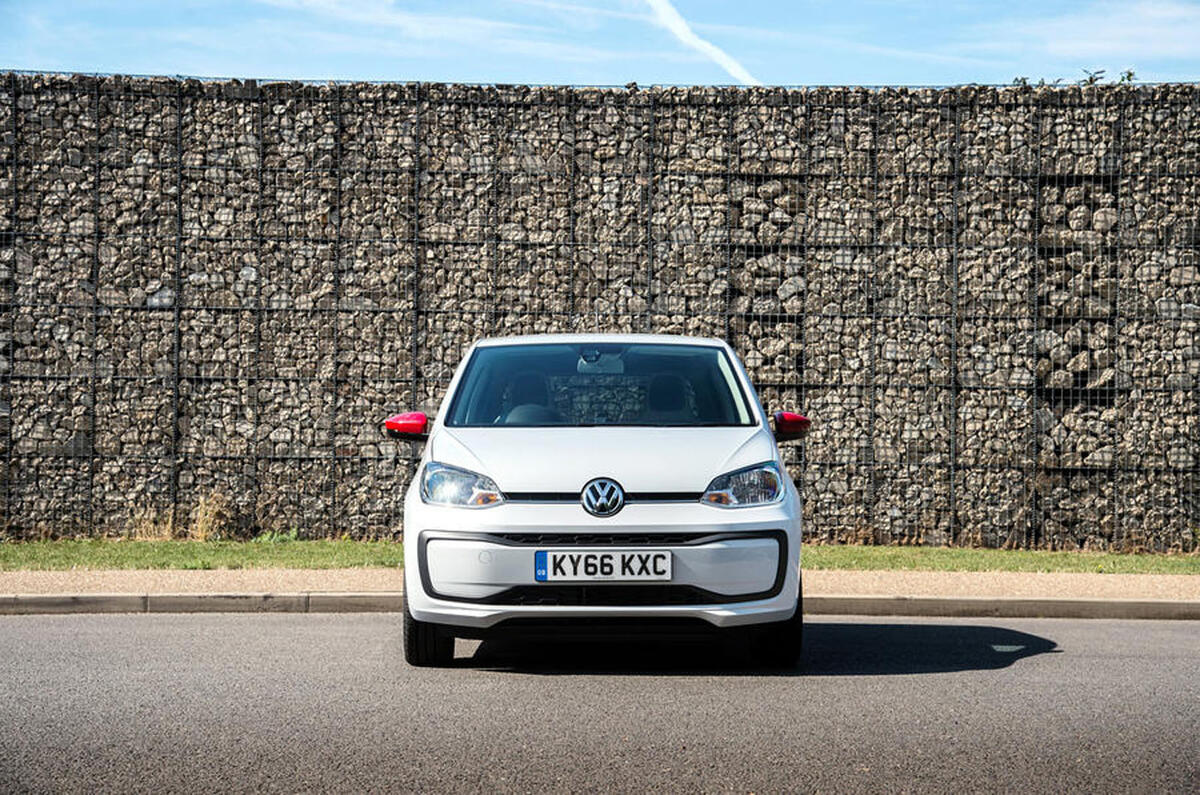Proposed stricter emissions laws in Europe will kill off city cars such as the Volkswagen Up because there will be no business case for them, according to VW sales and marketing boss Jürgen Stackmann.
The European Union is proposing to cut CO2 emissions by 37.5% on cars from 2021 levels by 2030. By next year, car makers, including VW, must have average CO2 emissions of 95g/km, which a non-CNG- (or non-electric-) powered Up already exceeds on the new, tougher WLTP emissions standards that all car makers are to be judged on.
In effect, it means that VW will be selling its Up city car, which already has very slender profit margins, over the stricter emissions limits, and other cars in its range – namely electric cars – will have to be sold under the limit to compensate. Given that profit margins will be even slimmer on first-generation electric cars based on the new MEB platform, the business case for city cars is effectively removed.
“If Europe is pursuing this legal target, there is no single business case for cars the size of the Up,” Stackmann told Autocar at the Geneva motor show. “They are too small for the new technology, and the engine can’t meet the CO2 targets. You’d need to sell an EV [like an ID] just to be able to sell a city car.
“So the life of small cars with conventional engines is very hard. It’s a problem. I don’t think the politicians have picked this problem up yet. What do you buy in the future when you cannot afford a new car?”
Stackmann said he still sees a “very strong life for the foreseeable future” for the Up, likely over the next three to four years, as well as a significant upgrade to the all-electric Volkswagen e-up.
To that end, the company will focus on the e-Up to try to make it more affordable, but it will still not be as cheap as the entry-level city cars of today. That means many will be forced out of being to able to afford a new car in the future due to the prohibitive cost of fitting electric technology to small cars, and the legislation killing off combustion engined-versions.
The e-Up will remain as the car's name because it will not adopt the ID badging of VW’s range of new electric cars based on the MEB platform. Stackmann said the e-Up will remain VW’s entry point to electric mobility and it has huge potential as an urban vehicle.
Read more








Join the debate
Add your comment
We Need EV Charging Points
If car manufacturers are considering stopping building petrol cily cars then we needs thousands of EV charging places as millions of us can't charge at home. Is that likely to happen in the near future?
And so it begins...
Well, why shouldn’t they be ?, we’re making EV ones just now,in the future everything with Wheels going into busy Metropolis will have to be, stop whinging!, it’s the future....